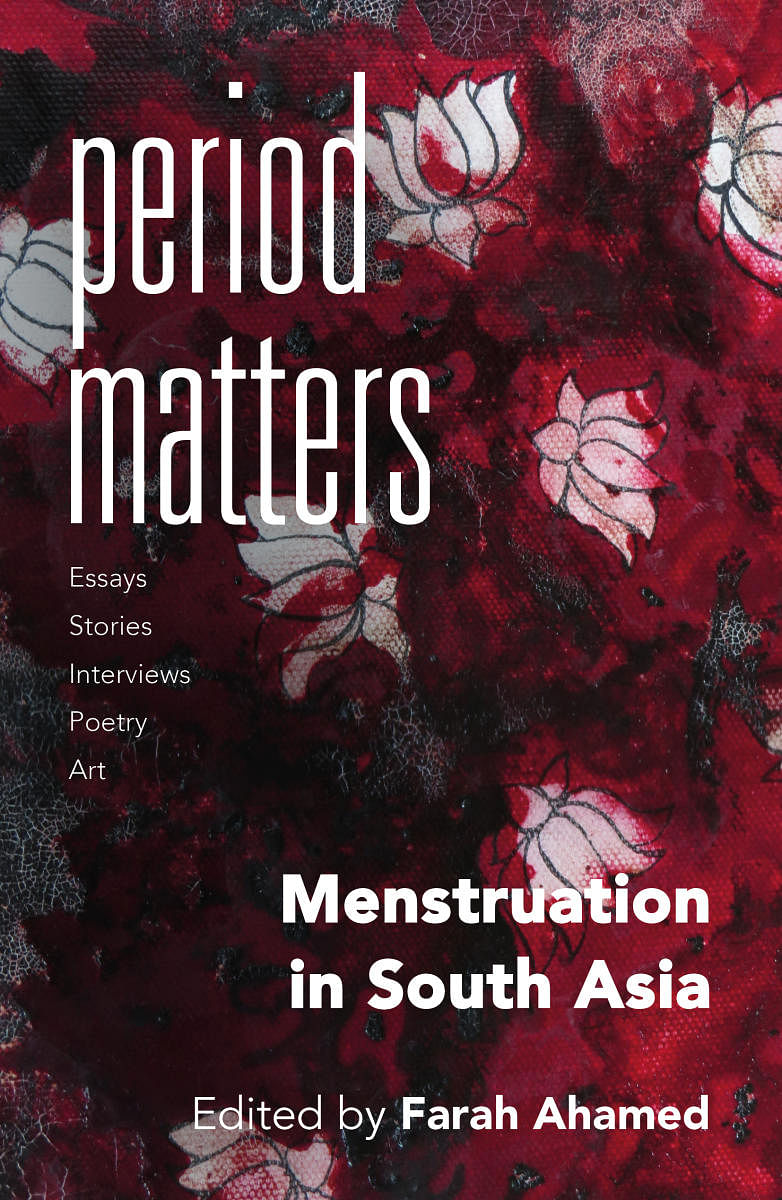

My mother narrated this story to me in what now seems such a distant past that I am surprised I remember it at all. Time has nibbled, of course, at the edges of the story, but the core of it remains intact. It is the story of the wedding of my mother’s older sister. She, the bride, must have been about eleven. Certainly not more, since the rule was that a girl had to be married before her menarche.
After the wedding, she continued to stay with her parents until she ‘grew up’ (one of the many euphemisms for menstruation). Only then was she sent to her husband’s home with much éclat, her virginity intact. This wedding I am talking about was a five-day affair, and at some point, during the course of those five days, the bride, to everyone’s astonishment, and her family’s horror, seemed to go wild, running about in a frenzy, not letting anyone get close to her. When she was finally captured, the mystery was solved. She had started her period and had been terrified by the sight of her own blood. Perhaps she thought she was dying and had panicked.
Fast forward some fifty years. Things had changed a great deal. Girls were no longer married so young, they went to school, even to college, if they were lucky and their parents were liberal enough. The girl in my next anecdote discovered red in her underwear when she got home from school. She was scared into silence. She had a vague idea of what it might be, but surely it could not happen to her! She was only eleven. She hoped that it was some kind of an aberration and would stop. It didn’t. She had no choice then but to tell her mother what had happened. My mother (yes, I was that girl) took my news in her stride and took care of the practical part of it.
There were no sanitary pads then. If there were, people who lived in small towns did not know about them and most could not afford them. And therefore, my mother sat at her Singer sewing machine and stitched protective pads out of old, soft cotton sarees. These ‘pads’ had to be washed every day. By me, of course. I hated this part of my five-day ordeal as much as I hated what had happened to me. A mixture of anger and resentment overwhelmed me as I scrubbed at the pads. And helplessness. This would now happen every month, and I would be burdened with the awfulness of it forever and ever. So it seemed to me.
At the time, I had just recovered from a bout of typhoid, and part of the treatment had been starvation. And I had to walk three miles to school and back every day. This was in addition to spending seven hours in a school which had no proper toilets with running water for girls; instead, there was only a kind of hole in the ground for our use. Apart from this lack of sanitation, I had to deal with pain, cramps, bleeding and the constant fear that I had perhaps stained my dress. Without eyes at the back of my head, I could not check for stains, nor could I ask any one of my friends because this blood was not to be talked about. I was surrounded by a halo of silence and shame.
The first time I got my period, I told my mother I would not go to school the next day. She agreed. ‘Not go to school?’ I heard my father say sharply. ‘Is she going to miss school every month now?’ He spoke to my mother, not to me. It was as if a curtain had come down between us and he could not talk to me. Like I was no longer the same girl to whom he had spoken freely until then. In fact, I was no longer a girl. Menstruation is not a rite of passage to adulthood; it is a sharp knife that flashes down, separating the girl from the woman in a moment. But it is only the body that accepts womanhood; the mind remains a girl’s mind. Hence the bewilderment, the confusion. There was no one to whom I could talk about this. I could have spoken to my sister, but, though older than me, she had not yet had her first period. None of the girls in school ever spoke of it, either. They seemed so untroubled that I wondered whether I was the only one who suffered this shameful
thing. I soon realised then that this was the unspeakable, the unmentionable. The first time this unspoken agreement of silence was broken was when we were studying a Sanskrit text in our last year of school. We were reading an extract from the Indian epic, the Mahabharata. It was from the dramatic episode in which the
Pandava king, Yudhishthira, is tricked into gambling by his Kaurava cousins and loses his kingdom and his four brothers.
The desperate king is provoked into staking the common wife of the five Pandava brothers, Draupadi. And he loses her as well. The Kauravas, who wanted the kingdom by hook or by crook, are elated. They send messengers to Draupadi, telling her that she is now their maid, ordering her to come to them. She refuses to go. Finally, one of the Kaurava brothers drags her to the court while Draupadi pleads, ‘Don’t do this, let me go, let me go, I am ...’ The Sanskrit word for ‘menstruating woman’ used in the epic is rajasvala. What, we asked our Sanskrit master, did it mean? A bashful man who never looked his girl students in the face, he hemmed and hawed and finally said, using a commonly used euphemism for periods, ‘She was “sitting out”.’ I’d heard this phrase before, at my mother’s family home. Like in all orthodox families, women had to ‘sit out’ three days of their periods. This meant they sat on the ground, sometimes on a small mat, with some essentials including a plate, cup and glass in which they would be served food and water — from a distance, of course. Women were impure during their periods and would pollute anyone or anything they touched. So, they sat in isolation, doing absolutely nothing until the fourth morning when they would be given a bath. After this, they could return to their normal lives. Those who defend traditional practices said that this gave women some much-needed rest. What kind of rest was it, sitting on the ground, leaning against a wall, sleeping on a hard surface? This, while she suffered from cramps, backache, and heavy bleeding too. It was a punishment. It is not surprising that one of the names for menstruation is ‘the curse’. An aunt told me the story of how once when she was only a girl and was ‘sitting out’ and needed to go to the toilet, she could not because there were visitors in the room. She could not appear before strangers at such a time. One of her cousins, a boy, said, ‘Come with me,’ and, held a sheet in front of her so that she would not be visible to the guest and took her to the toilet. ‘I almost died of shame,’ she told me. The shame of having to appear before strange men. The shame of having people know what was wrong with her. The shame of having to make her bodily problems public. Girls were made to understand, almost without being told, that menstruation was a very private matter, you could not speak of it, not even to brothers and fathers. And yet it became public when they observed the ‘sitting out’ custom. My sister and I were lucky, as our father did not believe in any of these rituals. We never had to seclude ourselves, we were never in the not-to-be-touched state. Yet the shame lingered. This is why I was excited by the Draupadi story, fascinated by the thought that a woman of those times spoke openly of her period, and it had been recorded in what is almost a sacred book. In time, the sense of shame receded. It helped that my sister became a student of medicine, and I heard her and her friends speak with the candour of their own periods. The subject was no longer taboo. I also came to terms with the idea that there would be a few days each month of which I had to take note if I was planning anything. I kept an eye on the calendar with the same intense interest with which a weatherman watches the approach of a cyclone or a tornado. It certainly helped that sanitary pads came into India when I got older. And after marrying a doctor, I was able to look at menstruation more logically, and see it as part of the reproductive process. I could admire the miraculous way in which it worked, the cyclical nature of women’s fertility, and the almost clockwork-like regularity of the cycle. Menstruation, for me, became the play of hormones in a woman’s body, each performing its role, then bowing gracefully out, allowing another to take its place in the dance.
(Excerpted with permission from Period Matters: Menstruation in South Asia Edited by Farah Ahamed and published by Pan Macmillan India.)